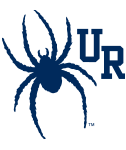
The next graduating senior is BMB major, Catherine (Cathy) Bayas. I was so proud that she was awarded the most outstanding BMB major this year at our awards ceremony. In my nomination of her for this award, I discussed how she worked on three projects throughout her time on the lab. in her first summer, she started on a collaborative project with Dr. Kristine Nolin that unfortunately has stalled due to the pandemic. However, she was able to transition to a different project last summer and throughout her senior year for her honor’s thesis. Besides that, she tested the potential COVID-19 protease inhibitors developed by our computational collaborators, Justin Airas and Dr. Carol Parish. Anyone who was at her senior seminar presentation would have been in awe of her accomplishments – and she didn’t even get to talk about them all. In addition to her success in the research lab, she was a great TA for biochemistry lab and has been a welcoming and enjoyable member of the lab over the years.
Let’s hear from Cathy as she reflects on her experiences:
1. Why did you decide to join the Pollock lab?
Cathy: I joined the Pollock lab in the summer of 2019 through a collaborative project with Dr. Kristine Nolin. The project focused on chemical modification of the QB bacteriophage with the aim of creating a viral sponge capable of encapsulating of endocrine-disrupting compounds. This project immediately caught my interest, particularly since this was a completely new application of virus-like particles which have been used in vaccines and drug delivery. However, due to setbacks in numbers and the COVID-19 pandemic, it was time for me to pursue a new path in the Pollock lab. In the summer of 2021, I embarked on a new project to characterize the interactions of MEMO1 with Estrogen Receptor alpha and c-Src which are believed to facilitate tumor aggression in breast cancers. Understanding breast cancer at the molecular level is fundamental to finding new targets for therapy and this is what Dr. Pollock does best!
2. What was your favorite part about your research experience?
Cathy: My favorite part of my research experience was working up the data from my fluorescence polarization experiments and thinking critically about what the numbers are telling us about the nature of c-Src and ERalpha binding to MEMO1. I wasn’t able to produce any quantifiable data from my first project, so I was stoked when I finally ran a successful FP binding assay and obtained solid results!
3. What do you plan to do after graduation?
Cathy: After graduation, I will be working as a medical assistant at Capital Dermatology in Alexandria, VA while studying for the MCAT. I intend to apply for fall 2024 admission to medical school, so fingers crossed my plans go smoothly!
4. As you reflect back on your time at University of Richmond, what advice would you give to an incoming student who was interested in your career path?
Cathy: Make the most out of your time here. Four years goes by very fast! Give your professors your 110 percent effort, but also make time for yourself outside of the classroom. Join clubs, pursue classes outside your major field, join a research lab, and make lasting friendships!
Cathy – I remember when Dr. Nolin first introduced me to you – you were quiet and timid about research. When I think about how much you have blossomed over the past 3.5 years, I can’t help but smile. You have stuck with me through THREE projects and kicked butt on all of them. I know you will continue to do that on the MCAT, as a medical assistant, in medical school, and as a doctor in the future. Keep me up-to-date on everything!
~jap

Recent Comments